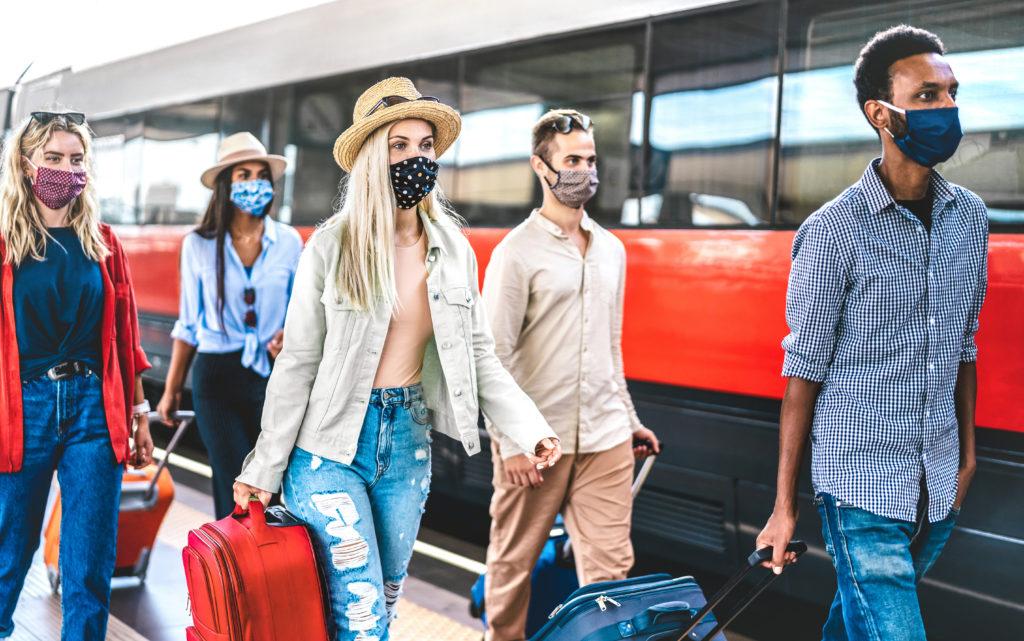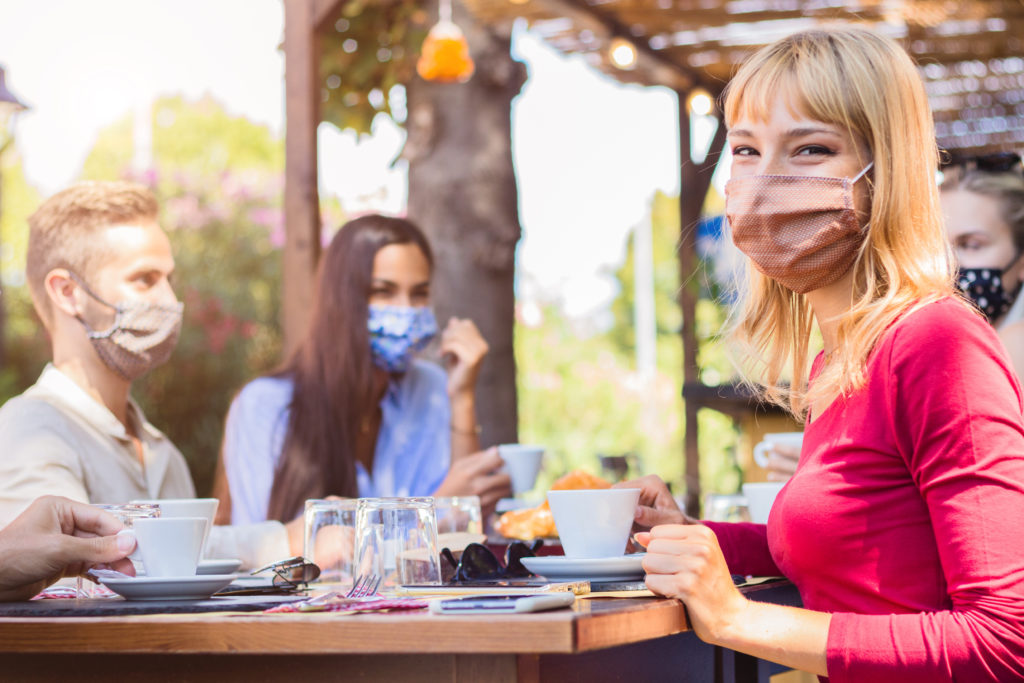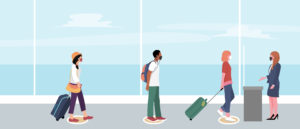The coronavirus pandemic is not over yet but many countries around the world have begun to open borders with either testing protocols or vaccine requirements in place. As the pandemic becomes more endemic in society, we’re even starting to see some Asian countries, such as Singapore, announce plans to open to tourism in a shift from striving to reach “COVID-zero” to living with COVID-19 going forward.
COVID rules vary wildly from country to country and you’ll often find that the official rules don’t always correlate to how people actually live out daily life in the real world. Enforcement and verification of documents at border checkpoints can also vary depending on which country you’re entering, whether you cross the border by land or air, and the particular control agent.
The CDC recommends that you should only travel if you are fully vaccinated and advises unvaccinated people who must travel to take multiple tests both before and after travel. If you decide to travel internationally, you’ll also have to stay up-to-date on entry requirements for your destination and return to the U.S., which currently requires all travelers to provide proof of a negative COVID test before boarding a U.S.-bound flight, regardless of vaccination status.
What Are COVID Restrictions for Travel?

Since each country has its own restrictions in place, you’ll need to research ahead of time to know exactly what is required for travel. A good place to start is by checking COVID-19 Country Specific Information from the U.S. Embassy of the particular country you’re visiting. These pages will also give an overview of the official rules and regulations on the ground pertaining to quarantine, curfews, and transportation options. You’ll also find links to local resources for more detailed information.
Another good resource specifically designed to let you know what documents you’ll need to fly internationally is the IATA TravelCentre. This is especially useful if you’re traveling between two international destinations. You’ll simply input all of your details such as destination, departure country, date of travel, duration, and purpose of stay. It also asks for your passport information and which countries you’ve visited recently. Once you’ve given all of your details, the system will show you which documents and tests are required for your particular trip and is the same information that many airlines use for verifying documents during check-in.
Related: Where Can Americans Travel Right Now?
How Are COVID Rules Enforced Around the World

After you’ve figured out what the official rules are for travel during COVID, you may want to do some additional research to find out how those rules are actually enforced or followed.
International Air Travel
I recently took my first trip outside of North America since the beginning of the pandemic. For the past two years, I had only traveled within the U.S. or to Mexico and I was excited to see another part of the world again. Like many, I wondered if the extra steps involved and travel restrictions were worth taking such a long trip abroad. And I’m happy to report that it is worth it.
I flew from San Diego to Barcelona, where I stayed a few days before continuing on to Montenegro. Since I’m fully vaccinated, Spain simply required proof of vaccination for entry. I had to fill out a health questionnaire online before travel stating that I had been vaccinated and had proof. Surprisingly, I was never actually asked to upload or physically show my white COVID-19 CDC vaccine card to anyone before I entered Spain.
I definitely wouldn’t expect this to be the case normally but the honor system may apply in certain destinations and agents may only be doing spot checks to speed the process. For my flight from Spain to Montenegro, I had to upload my vaccine card before getting a boarding pass. Due to missing my flight, I ended up flying via Budapest, which didn’t require any additional document checks for the flight between Spain and Hungary but my vaccine card was physically checked at the boarding gate in Budapest and upon entering Montenegro at the airport.
Land Border Crossings
While in Montenegro, I also took a road trip to Albania with some friends. When crossing the land border in both directions, those of us in the car were simply asked if we had a COVID test or vaccine. While we all had our vaccine cards available to show, the agent simply handed back our passports and waved us through without really checking. I’ve also heard anecdotes that this is similar at many border crossings around Europe, though you’re likely to find stricter protocols in Western Europe and Scandinavia.
Related: This One Simple Trick Just Saved My European Trip
Mask Policies and Gatherings
Rules on when and where you need to wear a mask and how many people can gather at restaurants or events can be extremely difficult to enforce. Although many countries and local municipalities have specific rules in place, it is often up to local businesses and its citizens to follow and enforce mask policies.
For instance, in Montenegro it is required to wear a mask indoors but I only really see this in practice at grocery stores, pharmacies, and a few limited shops. At cafes and restaurants, it’s rare to see people wearing masks when entering or leaving and the staff have even told our group, “You don’t have to wear a mask.”
Of course, this will vary considerably depending on where you are traveling. In Spain, it was common to see people wearing masks—even outdoors. And mask requirements at airports and during public transportation are generally adhered to around the world. Although, it was very noticeable upon arriving in Budapest that most passengers removed their masks immediately after leaving the plane and remained unmasked throughout the airport.
Basically, it’s best to be prepared and follow all of the official protocols in place for where you are traveling but don’t be surprised if it’s more lenient in practice compared to what is stated as a rule. You’ll likely find that protocols will be more strict in cities than they are in rural areas and certain regions of the world will follow the restrictions more closely than others.
Related: 5 Face Masks You Can't Wear on a Plane
Where to Find Local Information

While you’ll never truly know what a situation is like on the ground until you’re actually in it, there are some resources that can help you get an idea of what traveling and daily life is like in a particular location during COVID.
Expat groups are a great way to find crowd-sourced information relevant to travelers. You can search for these types of groups on social media platforms like Facebook and Reddit but you’ll want to be diligent to make sure you choose a group that is actively moderated to filter out spam and misinformation. WhatsApp groups are also a great resource of local information and you can find links either by doing a Google search or asking for links in other social media groups.






